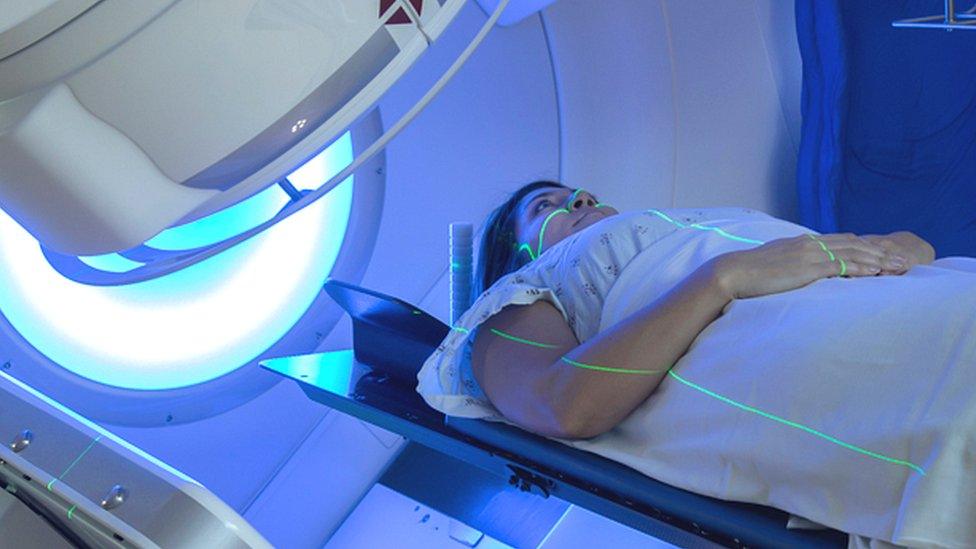Cancer: More than a third of Wales' cases found as emergencies
- Published
Mother-of two Lucy found a lump in her breast while on maternity leave
More than a third of Wales' cancer cases are found when people arrive as hospital emergencies, researchers say.
A study found 37% of cancers were spotted in departments such as A&E, a similar proportion to other UK nations.
Cancer Research UK fears too many cancers are being found at too late a stage for people to recover.
The Welsh government said it had pumped £5m into NHS Wales for extra cancer appointments and was investing in cancer doctors and equipment.
Newport's Lucy Molloy was grateful the NHS diagnosed her cancer quickly.
But the 35-year-old wanted improvements as her late father was diagnosed with advanced prostate cancer in A&E.
Mother-of two Lucy found a lump in her breast while on maternity leave in August.
She was referred to the breast clinic immediately where she was told she had grade 3 breast cancer.
She had six rounds of chemotherapy, followed by a mastectomy in February.
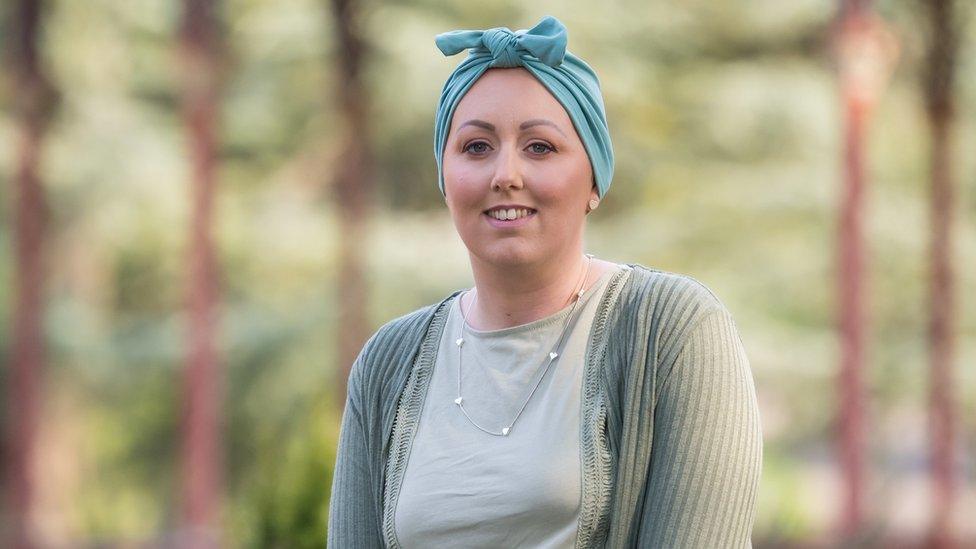
Newport's Lucy Molloy was grateful the NHS diagnosed her cancer quickly
Doctors told her the cancer has not spread and she is waiting to hear if she will need radiotherapy.
Her 74-year-old dad Alan Molloy died in 2020, 18 months after being diagnosed.
He visited a GP five times in 2018 with back pain and weak legs but was not referred for tests.
Ms Molloy said her dad was fit and enjoyed cycling.
"He would never go to the GP and when he went, he had terrible backache and you could see he was quite unwell," she said.
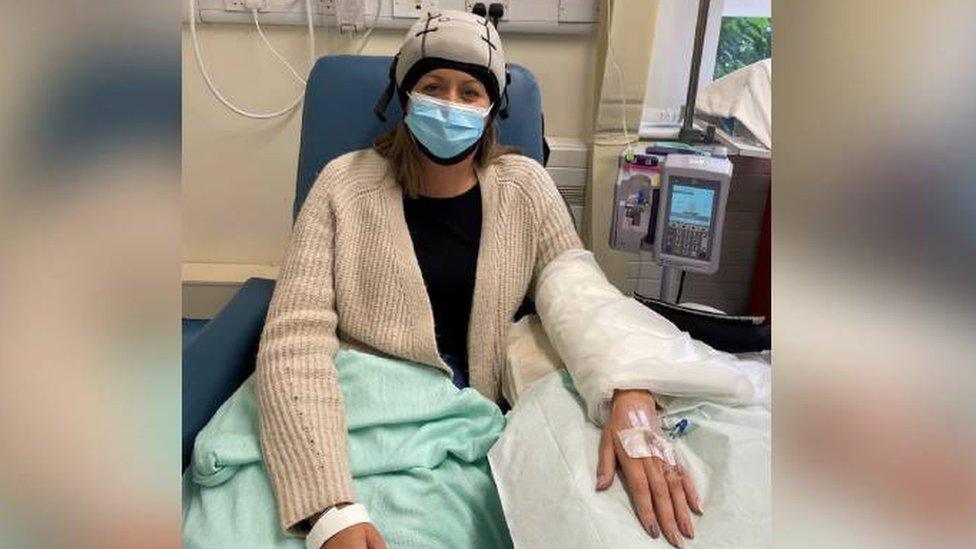
Lucy Molloy had six rounds of chemotherapy and a mastectomy in February
"But he was told he was fine and had pulled a muscle.
"His last two appointments were over the phone as he was too poorly to even get to the GP surgery."
In 2018, the former South Wales Argus sub-editor was diagnosed with stage four prostate cancer within 24 hours of arriving at the Royal Gwent Hospital's now closed A&E.
His daughter said: "The cancer had spread to his spine, ribs and pelvis which is why he was in so much pain."
'Listen to your body'

Natalie Lewis, with her dog Jarvis, says she has been left with anxiety and depression.
Natalie Lewis, from Llandudno, Conwy county, said it was important to keep "pushing" with doctors, and to "listen to your body".
She told BBC Radio Wales Drive that she was taken to hospital after a seizure that was probably caused by a cancerous brain tumour.
"I'd been having headaches for up to a year, almost migraines," she said. "Having to take an extensive amount of painkillers to fight off the pain to go to work."
She said she was advised to stop taking painkillers, but seven days later, in July 2016, she had the seizure. She had a recurrence of the tumour in 2019.
But although she began radiotherapy in March 2020, chemotherapy was delayed due to Covid, and it did not start until late 2021.
She urged anyone with concerns to get them checked out. "My friends are probably sick of me but anybody that's got a migraine, stinging eyes or persistent headache - I practically march them off to the doctors now. "
University College London researchers found more than a third of patients in Wales (37.4%), England (37%) and Scotland (38.5%) were diagnosed after being rushed into hospital.
In Northern Ireland, which was measured using a different definition, emergency presentations accounted for more 27.9% of diagnoses.
It is the first time figures from the UK nations, with data from the Welsh Cancer Intelligence and Surveillance unit, have been analysed alongside data from comparable countries.
The study covered over 857,600 cancer cases across Australia, Canada, Denmark, New Zealand and the UK diagnosed between 2012 and 2017.
But with the data only going up to 2017, there are fears the pandemic, when screening was paused, will have made the problem worse.
Katie Till from Cancer Research UK said: "We're really worried that we will see more people getting diagnosed at a later stage due to the pandemic.
"And some of that is additional stretch within the system and workforce shortages."
She said some were "still reluctant to go and access their GP" and urged anyone who had concerns or symptoms to go to the doctor.
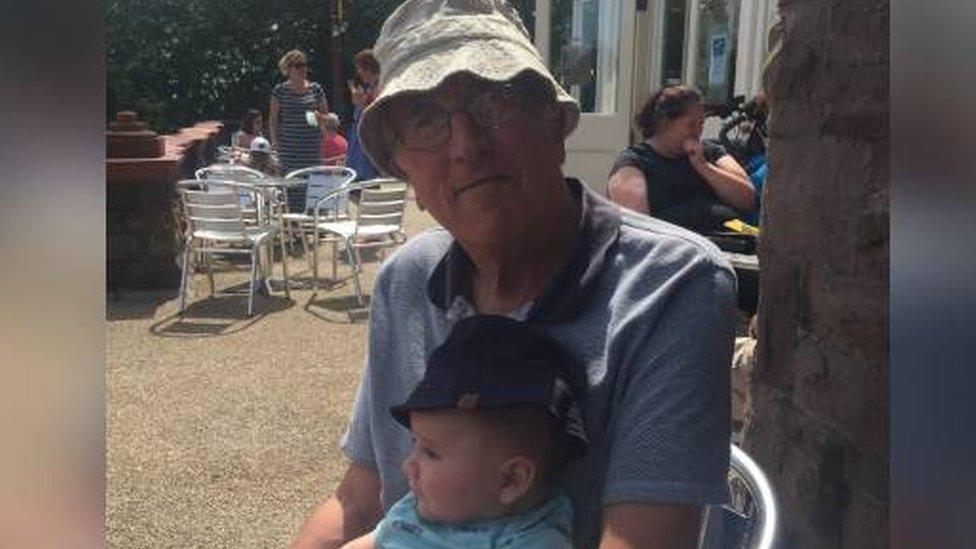
Alan Molloy died after being diagnosed with stage four cancer in A&E
Ms Till said: "Despite the best efforts of its workforce, the NHS is creaking under the weight of the pandemic, staff shortages and an overall lack of investment.
"We know that one reason so many people end up in A&E is because we don't have enough staff and kit to test and diagnose cancer through usual routes.
"An ambitious and fully funded cancer plan is needed to ensure the NHS in Wales is world-class and fit for the future.
"Without this, cancer survival could go backwards."
The Welsh government said it recognised the effect of the pandemic on cancer services.
A spokesman said: "We have provided £5m of additional resources to the NHS in Wales to support additional cancer appointments and are investing millions more training additional cancer clinicians and installing the latest diagnostic and radiotherapy treatment equipment.
"GPs in Wales are referring record numbers of people for investigation and rapid diagnostic centres are being rolled out to help identify people with vague symptoms of cancer."

LESSONS FROM LOCKDOWN: How has the experience of lockdown changed us?
LAST CHANCE TO SAVE: Will Millard explores some of Wales’s hidden historic buildings

- Published4 February 2022

- Published4 October 2021
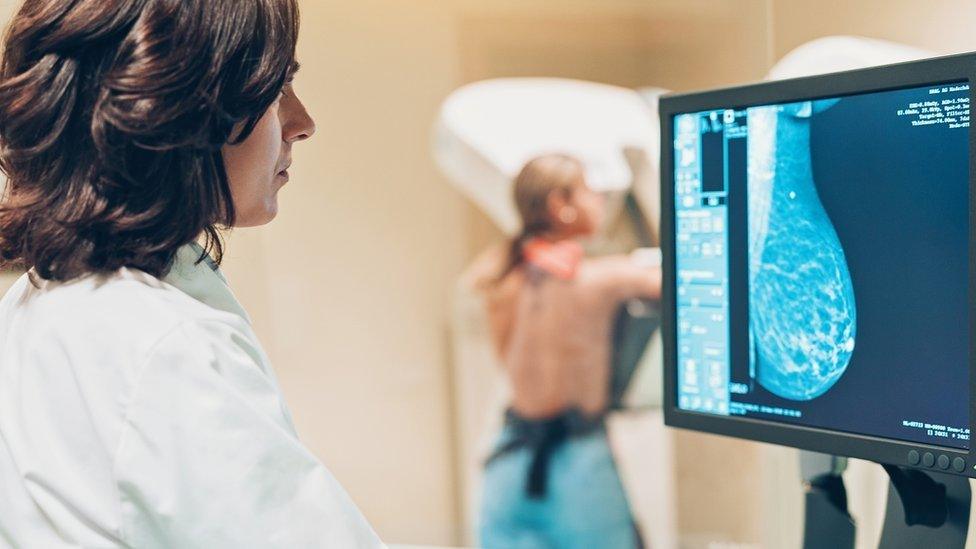
- Published24 September 2021
